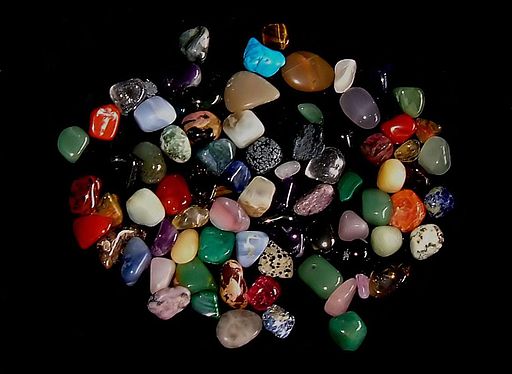
Exploring the Timeless Elegance of Semi-Precious Gemstones in Ancient Jewelry
Share
The art of jewelry-making dates back centuries, with ancient civilizations adorning themselves with exquisite ornaments that reflected their culture and beliefs. Among the various elements that made ancient jewelry truly enchanting, semi-precious gemstones held a special place. In this blog post, we'll embark on a journey to explore the timeless elegance and cultural significance of semi-precious gemstones in ancient jewelry.

Roman Child's necklace with Carnelian Agate.
The Significance of Semi-Precious Gemstones in Ancient Times
Semi-precious gemstones were highly valued in ancient times, not only for their aesthetic appeal but also for their symbolic and healing properties. These gemstones were believed to possess mystical powers and were often worn as protective talismans or amulets. Their vibrant colors and inherent beauty made them perfect for creating eye-catching jewelry pieces that stood out in ancient societies.

Frankish disk fibula made with sheet gold decorated with Lapis Lazuli and Carnelian Agate.
Semi-Precious Gemstones in Ancient Civilizations
Ancient Egypt: The Pharaohs and the Elite
Ancient Egypt was renowned for its opulent jewelry, and semi-precious gemstones played a significant role in their creations. Lapis lazuli, a deep blue stone, was highly prized and often associated with divinity and royalty. It adorned the famous burial mask of Tutankhamun, signifying his elevated status. Another popular gemstone was carnelian, which symbolized life and vitality, and was used extensively in amulets and necklaces.

Ancient Egyptian "Ba" Bird representing one's spiritual self. Inlaid with Lapis Lazuli, turquoise and agate.
Ancient Greece: Mythology and Magic
The ancient Greeks believed that gemstones were gifts from the gods and held magical properties. Amethyst, with its purple hue, was revered for its ability to protect against intoxication and promote clarity of thought. Garnets, known for their deep red color, were associated with love and passion. These gemstones were meticulously incorporated into intricate jewelry designs, often depicting mythological figures and symbols.

1st Century Greek Sphinx gold earring inlayed with semi-precious stones.
Ancient India: Richness and Spirituality
Ancient India has a rich history of jewelry-making, and semi-precious gemstones held a special place in their culture. The vibrant green emerald was highly prized and believed to bring good fortune and prosperity. The alluring red ruby was associated with power and passion. These gemstones adorned the intricate gold jewelry worn by royalty and nobility, making a bold statement about their status and wealth.
Earrings with the Deity Vishnu, inlayed with Lapis Lazuli and other semi-precious gemstones.
Symbolism and Meanings of Semi-Precious Gemstones
Each semi-precious gemstone held its unique symbolism and meaning, adding depth to the ancient jewelry designs. For instance, amethyst represented wisdom and spirituality, while turquoise symbolized protection and healing. Citrine was associated with success and abundance, and rose quartz signified love and harmony. These symbolic associations made the jewelry not only visually appealing but also emotionally significant.

Nubian, New Kingdom era gold and amethyst Lion's head amulet.
Rediscovering Ancient Gemstone Jewelry Today
In the modern era, the allure of semi-precious gemstones in ancient jewelry continues to captivate and inspire. Artisans and jewelry designers draw inspiration from the past, incorporating these gemstones into contemporary designs. From delicate necklaces to statement rings, these gemstones add a touch of history and elegance to our modern lives.

Exquisite 3rd century carved Jade bird pendant from South America.
Semi-precious gemstones have long fascinated humanity, and their presence in ancient jewelry speaks volumes about the cultural, symbolic, and aesthetic values they held. Today, we continue to appreciate the beauty and significance of these gems, cherishing them as a connection to our rich past. Whether worn as a personal adornment or cherished as a piece of art, semi-precious gemstones in ancient jewelry remain a timeless testament to the creativity and sophistication of our ancestors.

